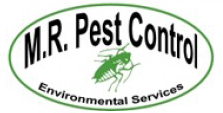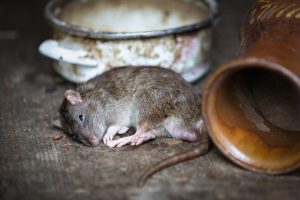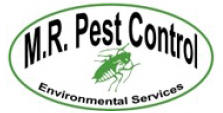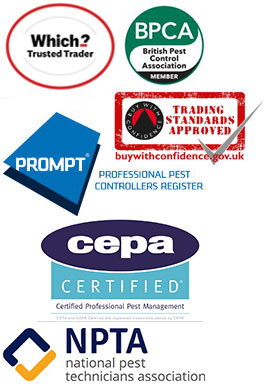Understanding Pest Treatment Services
Pest treatment services play a crucial role in maintaining a safe and healthy living environment. These services involve trained professionals who use specialised techniques to manage and eradicate pests. Common pests include termites, rodents, ants and cockroaches. Each pest type requires a specific approach for effective control.
Types of Pest Treatment Services
- Chemical Treatments
- Involve the application of pesticides.
- Effective against a wide range of pests.
- Commonly used for termite control.
- Biological Treatments
- Utilise natural predators.
- Safe and eco-friendly.
- Often used in garden pest control.
- Physical Treatments
- Include traps and barriers.
- Non-toxic and immediate.
- Effective for rodents and insects.
- Integrated Pest Management (IPM)
- Combines multiple methods.
- Focuses on long-term prevention.
- Environmentally sustainable approach.
Benefits of Professional Pest Treatment
- Expert Knowledge
- Professionals identify pest types accurately.
- Can implement tailored solutions.
- Advanced Techniques
- Use up-to-date equipment.
- Apply the latest treatment methods.
- Safety
- Minimises risks to inhabitants.
- Employs safe products for pets and humans.
- Long-Term Prevention
- Focuses on eliminating root causes.
- Provides ongoing monitoring and maintenance.
When to Use Pest Treatment Services
We should consider pest treatment services when facing recurring infestations. Signs such as droppings, bite marks and damaged property often indicate a pest problem. Ignoring these issues can lead to larger infestations and health risks.
By opting for professional pest treatment services during initial signs of infestation, we mitigate potential damage and ensure a healthier living environment.
Benefits of Professional Pest Control
Professional pest control offers several advantages for both households and businesses. Utilising expert services ensures effective and safe pest management.
Health and Safety
Expert pest control enhances health and safety by removing harmful pests that carry diseases. For example, rodents and cockroaches can spread pathogens causing illnesses like salmonella and Hantavirus. Professionals use industry-approved treatments that minimise risks to humans and pets, ensuring a safer living environment. Moreover, they identify entry points and nesting areas, addressing the root cause of infestations.
Long-Term Solutions
Professional pest control provides long-term solutions by implementing Integrated Pest Management (IPM) strategies. These methods focus on preventing future infestations through a combination of techniques such as sealing entry points, managing waste, and using eco-friendly treatments. For instance, IPM targets specific pests like termites by introducing biological agents that disrupt their lifecycle. This comprehensive approach reduces the likelihood of recurring issues and helps maintain a pest-free environment for the long term.
Types of Pest Infestations
Pest infestations can disrupt our daily lives and pose various health risks. Understanding the common types helps manage and prevent these issues effectively.
Common Household Pests in the UK
Certain pests frequently invade homes across the UK. These include:
- Rodents: Mice and rats cause property damage and spread diseases like Leptospirosis.
- Cockroaches: Known for contaminating food and spreading bacteria such as Salmonella.
- Ants: Particularly the black garden ant, which seeks food indoors, causing hygiene problems.
- Bed Bugs: Infestations lead to skin irritations and allergic reactions.
- Wasps: Their stings can cause severe allergic reactions and disrupt outdoor activities.
Each type poses unique challenges, necessitating tailored pest treatment strategies.
Pest Risks and Health Impacts
Pests can significantly impact our health and property. Key risks include:
- Disease Transmission: Rodents, mosquitoes, and cockroaches are vectors for illnesses like E. coli and malaria.
- Allergic Reactions: Insects like bed bugs and wasps can cause allergic reactions, ranging from mild to severe.
- Asthma Triggers: Cockroach droppings and dust mites exacerbate asthma symptoms and respiratory issues.
- Property Damage: Termites and rodents can undermine the structural integrity of homes and buildings.
- Contamination: Food and water sources can become contaminated, leading to foodborne illnesses.
Managing these risks involves prompt and effective pest treatment services to maintain a safe living environment.
Choosing the Right Pest Control Service
Selecting the best pest control service ensures effective and lasting results. We’ll discuss factors to consider and the importance of accreditation and certification.
Factors to Consider
Identifying the type of pests in your home is crucial. Different pests require specific treatments. Evaluate the service provider’s experience and expertise with the particular pests you face, such as rodents, cockroaches, or ants.
Check customer reviews and seek recommendations. Testimonials provide insights into the company’s reliability and effectiveness. Ensure the company offers a range of treatment options, including eco-friendly solutions, to suit your needs and preferences.
Review the company’s methods for safety and compliance with UK standards. Ensure they address both immediate infestations and long-term prevention strategies. A thorough inspection and customised plan demonstrate a service that prioritises comprehensive pest management.
Accreditation and Certification
Verify the company’s accreditation with recognised bodies, such as the British Pest Control Association (BPCA). Certified companies adhere to high standards of pest control practices and ethics.
Ensure technicians hold qualifications, like the Royal Society for Public Health (RSPH) Level 2 Award in Pest Management. Qualified professionals ensure proper handling of treatments and compliance with safety regulations.
Accredited services show a commitment to quality and safety. Certified companies stay updated with the latest pest control techniques and regulatory changes, providing effective and responsible pest management solutions.
Pest Control Treatment Process
Professional pest control treatment follows a structured process to ensure effective and lasting results. We’ll outline the main steps to provide clarity on what to expect.
Initial Assessment
Professionals begin with a thorough inspection to determine the extent and type of pest infestation. They examine key areas, including kitchens, basements, and attics, checking for signs like droppings, nests, and damage. This assessment allows them to identify the pest species and understand the severity of the problem.
Treatment Plan and Implementation
Based on the initial assessment, experts develop a customised treatment plan tailored to the specific pest issue. This plan includes the selection of suitable methods, such as chemical treatments, traps, or eco-friendly alternatives. For example, rodent infestations may involve the use of bait stations, while termite treatments might employ liquid termiticides or bait systems. The implementation phase involves applying these techniques efficiently to eliminate pests while minimising disruption to the household.
Follow-Up and Aftercare
Follow-up visits ensure the treatment’s success and monitor for any recurring issues. Technicians assess the effectiveness of the initial intervention and make necessary adjustments. They also provide aftercare advice, such as sealing entry points and maintaining cleanliness, to prevent future infestations. This comprehensive approach maintains a pest-free environment and addresses any concerns promptly.
Emergency Pest Control
In urgent situations, specialised emergency pest control services can address severe infestations. Immediate action is crucial to mitigate potential damage and health risks.
When to Seek Immediate Help
Certain signs demand instant intervention for pest control. Noticing a large number of pests, such as rodents or cockroaches, indicates a severe infestation that requires emergency services. Similarly, discovering wasp nests or termite damage to the property’s structure calls for immediate professional help. If family members experience unexplained health issues, like allergies or asthma, these might be caused by pests. Contacting emergency pest control at the first sign of significant activity can prevent further complications.
How Emergency Services Work
Emergency pest control services follow a structured approach to address urgent infestations. First, upon receiving a call, a trained technician quickly arrives at the location to assess the situation. The initial inspection identifies the type and extent of the infestation. Following this evaluation, a customised, immediate treatment plan is implemented using effective techniques and safe products tailored to the pest type. The technicians work promptly to eliminate the pests, ensuring minimal disruption. Post-intervention, a detailed report and preventive recommendations help maintain a pest-free environment, addressing both the immediate issue and future threats.
Key Takeaways
- Effective Pest Management: Professional pest treatment services use advanced techniques and eco-friendly solutions to tackle various infestations, ensuring safe and comfortable living spaces.
- Types of Treatments: The primary pest control methods include chemical treatments, biological treatments, physical treatments, and Integrated Pest Management (IPM), each suited for different types of pests.
- Professional Expertise: Pest control specialists offer expert knowledge, employ advanced techniques, and use safe products, reducing health risks and preventing long-term infestations.
- Health and Safety Benefits: Proper pest control removes harmful pests that can transmit diseases and cause allergies, enhancing overall health and the safety of households and businesses.
- Choosing the Right Service: Select a pest control service with accreditation and certifications, considering their methods, safety compliance, and customer reviews to ensure effective and responsible pest management.
Conclusion
Choosing professional pest treatment services is essential for maintaining a safe and healthy environment. By addressing infestations promptly and effectively, we can prevent the spread of diseases and property damage. Expert pest control services not only eliminate current pests but also focus on long-term prevention through advanced techniques and eco-friendly solutions.
Selecting a reputable provider ensures quality and compliance with UK standards, giving us peace of mind. Whether dealing with common household pests or requiring emergency intervention, professional services offer tailored solutions to meet our specific needs. Investing in these services is a proactive step towards a pest-free and healthier living space.
Frequently Asked Questions
What are common signs of a pest infestation at home?
Common signs include droppings, property damage, unusual odours, and sightings of pests. Additionally, you may notice nests or hear scratching noises in walls or ceilings.
What types of pest treatment services are available?
Services include chemical, biological, physical, and Integrated Pest Management (IPM). Each method is tailored to effectively control specific pests like termites, rodents, ants, and cockroaches.
When should I seek professional pest control services?
Seek professional help when you notice signs of recurring infestations, such as droppings or property damage, to avoid larger issues and health risks.
Are pest control treatments safe for my family and pets?
Yes, professional pest control services use industry-approved treatments designed to minimise risks to humans and pets while effectively eliminating pests.
What are the benefits of professional pest control?
Benefits include expert knowledge, advanced techniques, safety for inhabitants, long-term prevention, and a focus on addressing the root causes of infestations.
How do I choose the right pest control service?
Consider the type of pests, the provider’s experience, customer reviews, treatment options, and accreditation. Verify certifications from recognised bodies like the British Pest Control Association (BPCA).
What is Integrated Pest Management (IPM)?
IPM is a long-term prevention strategy involving a combination of biological, physical, and chemical methods to manage pests sustainably and minimise risks to humans and the environment.
What should I do in case of a severe pest infestation?
Contact emergency pest control services immediately. Look for signs such as a large number of pests, wasp nests, termite damage, and unexplained health issues linked to pests.
What are the most common household pests in the UK?
Common household pests include rodents, cockroaches, ants, bed bugs, and wasps. Each poses unique challenges and health risks, requiring prompt tailored pest treatment.
How do professional pest control services ensure long-term solutions?
They use IPM strategies, seal entry points, manage waste, and employ eco-friendly treatments. Follow-up visits and aftercare advice help maintain a pest-free environment.
Can local councils help with pest control?
Yes, local authority pest control or Environmental Health teams can provide assistance and advice. Some councils offer pest control services for a fee, especially if you’re not a local authority tenant.





